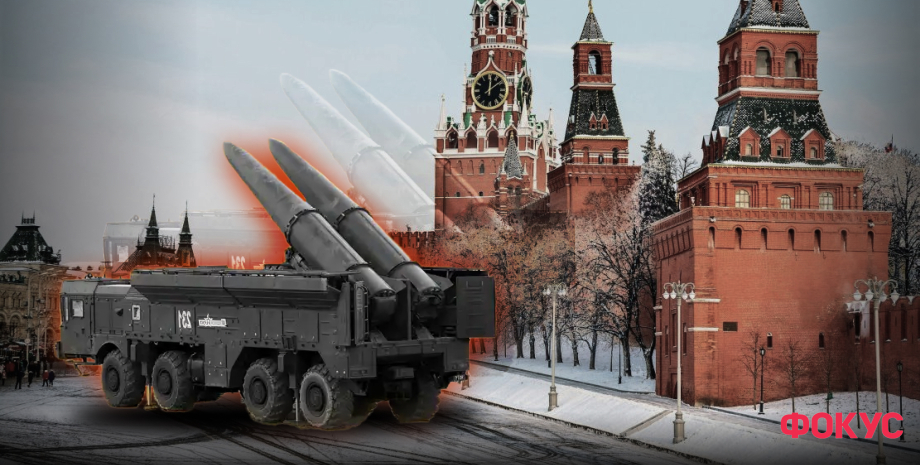
 By Natali Moss
By Natali Moss
The publication writes that the European Union is increasingly difficult to direct sanctions for great goals. Focus has explored how effective new EU sanctions may be for aggressor country. Financial analyst Andriy Shevchyshyn in the comment of Focus notes that if it is possible that the share of Russia in the aluminum market was approximately 25%, the limitation planned by the European Union is quite painful for the Russian Federation.
"At the beginning of 2023, the states were actually enclosed duties on aluminum for Russia. But for the Russian Federation it is still a significant item mechanical engineering, in the aerospace, etc. However, it is a very energy -intensive production, so after the ban on aluminum, if it is introduced by Europe, Russia will try (and it already does) redirect its aluminum flows to Asia, China, and from there - to Europe, " The expert believes.
Shevchyshyn emphasized: it is impossible to block everything, so some part will go to China and the rest will be blocked. "And here we have double sanctions, because during such an energy -intensive enterprise electricity is involved. So, if we turn off production at aluminum plants, we also see a sharp fall in electricity production. It will simply not need it in such a volume," - says Shevchyshyn.
Indeed, since the process of aluminum melting requires a lot of electricity, aluminum sanctions will simultaneously be sanctioned against the energy sector of the Russian Federation. Moreover, EU countries want to create additional obstacles to the acquisition of Russian components that it cannot produce itself and which it needs for high-tech weapons, such as guided missiles.
Aluminum sanctions slow down the development of its production in the Russian Federation, if it does not begin to "drain" it at half a price in China, but here the results are ambiguous. According to Lithuanian Foreign Minister Gabrielus Landsbergis, the struggle against the bypass of the sanctions remains a headache for the EU. "The difficulty is that some of these components do not fall under sanctions, because it can be something that, at first glance, looks quite harmless.
We call it spare parts for refrigerators. And the Russians disassemble it and then use it," - He explained. Economist, finance teacher at the Kyiv-Mohyla Business School (KMBS) Alexei Gerashchenko adds in a comment to Focus that there are no such sanctions in the current schedule of economic forces that can radically influence economic development indicators. "Sanctions have long -term influence, which is often manifested by specific significant negative consequences over the years.
This is especially true for military goals. DPRK and Iran are actually closed by countries that are largely closed from the outside world, instead living under sanctions and have an objectively rather developed military industry , which "share" from the Russian Federation. It is possible to mention largely closed from the outside world and the militarized Soviet Union.
Sanctions can influence in the long run on the standard of living of people in the Russian Federation, but not stop the production of weapons here and now, " - says the expert. According to him, in reality, to withstand sanctions is fully much more difficult than to introduce. Thus, the importers in Russia were Georgia, Uzbekistan, Kyrgyzstan.
Sanctions can affect the long term on the standard of living of people in the Russian Federation, but not stop the production of weapons here and now "that is from these countries, it buys something sanctioned for the Russian Federation in the EU or the US, and then sells in the Russian Federation, thus getting a sanction product there . A similar scheme can occur with the export of aluminum, which is referred to in the last discussed package.
If you look at the situation realistically without pink glasses, the Russian economy does not have development and growth, but does not fall. The modern schedule of economic forces in The world is that the weight of China, India, the global south in the world economy is not less than the US, the EU, Britain and their allies. In fact, it is comparable volumes.
Accordingly, any sanctions from one half of the world economy are unpleasant, but not Critical if the second half of the world economy does not adhere to them, and even more so try to use, " - explained Alexei Gerashchenko. Moreover, tension in the Middle East supports high energy prices, so objectively the Russian economy has reason to be in a fairly stable state. "It is not necessary to count on the rapid collapse of the economy, and the charming package of sanctions that will not exist.
Instead, sanctions are a politically important signal, they should also increase" public fatigue "from war in the Russian Federation, affect long-term consequences for the aggressor country" , - Gerashchenko explained. Nuclear power or liquefied natural gas (LNG) remain out of restrictions through the position of different EU countries.
"Rosatom" builds two new reactors for Hungary, so it does not allow sanctions on the Russian nuclear sector, and Russian LNG (liquefied gas), meanwhile, still imports by many countries, especially Spain. Therefore, within the 13th package of sanctions, the European Union plans to focus its attention not on Russian exports, but on Russian imports. Subsequently, the European Union plans to consider the embargo on a number of goods, but negotiations are early.










All rights reserved IN-Ukraine.info - 2022